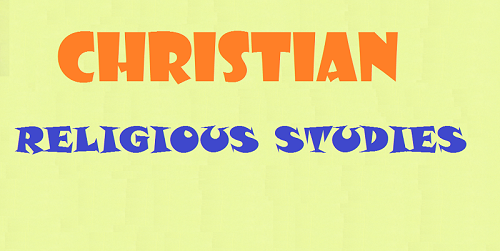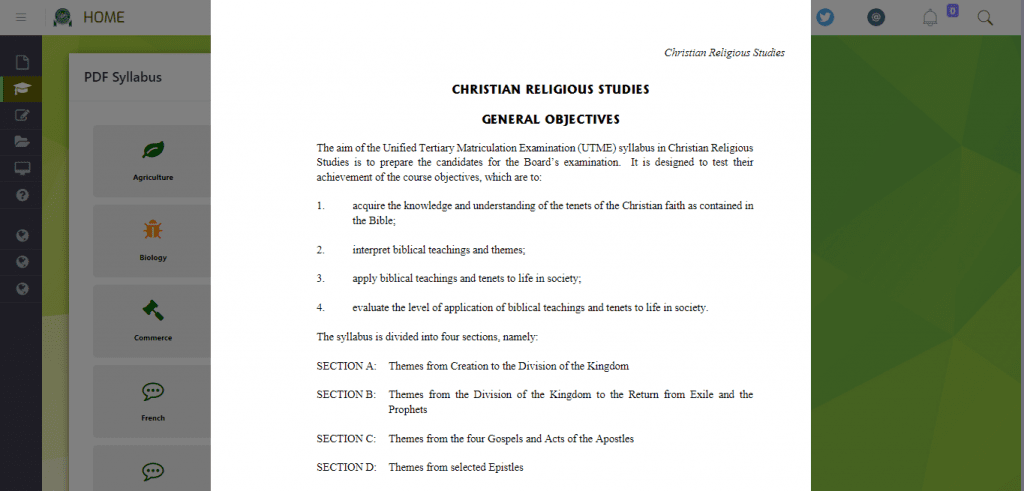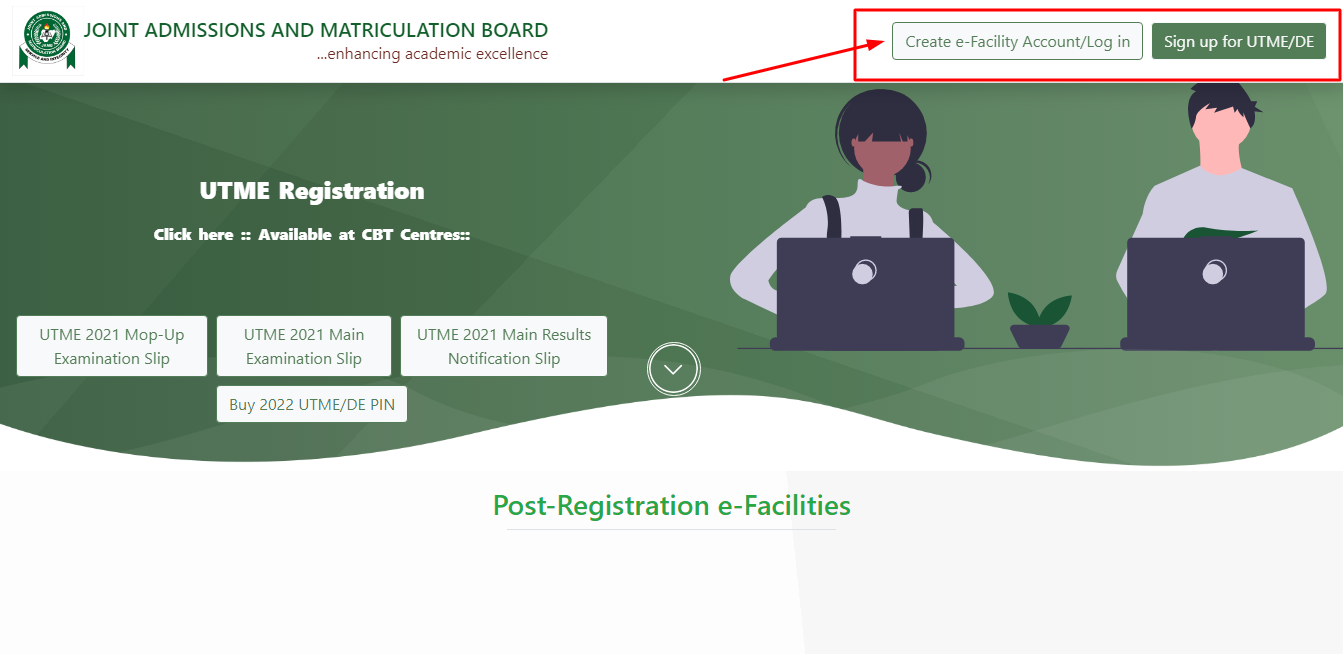JAMB CRS Syllabus 2024/2025: Is JAMB Syllabus for Christian Religious Studies (CRS) out for this year’s JAMB?, When will JAMB CRS syllabus be out?, JAMB CRK Syllabus 2024
Hey SAVANT! In today’s episode of my “JAMB Doctor Series“, I will provide you with the official topics recognize by JAMB, which JAMB expect you are a guru in before entering the hall to sit for your JAMB CRS Exam. STAY TUNED!

Have you ever wondered where you can find the topics for CRS, JAMB normally asks or the most repeated topics or question in JAMB CRS? then you are a step away from finding your answer.
The short answer to the above question is “JAMB Syllabus”, in fact, JAMB Syllabus is the only expo you will be getting as you prepare for 2024/2025 UTME Exams, this syllabus contains area of concentrations and topics your questions will be asked from.
Read Also: WAEC Marking Scheme For All subjects: Grading System
ARE YOU ON TELEGRAM? Subscribe To My Telegram Channel For Frequent Updates & Guide by clicking the "SUBSCRIBE NOW" button below.
Any smart students would cherish this piece (Syllabus) and make effective use of it, the fact that you are searching for this now, simply means you are in the right direction. you should see my top notch guide on How To Pass JAMB 2024/2025 With High Score (300+).
What Is JAMB CRS Syllabus?

JAMB Syllabus for Christian Religious Studies is a collection of topics JAMB expects students to be well grounded in before they sit for their CRS exam.
If CRS is one of the subjects you will sit for in JAMB, then you will need this. These were compiled by JAMB, so it is something you can rely on.
Read Also: JAMB Profile 2024/2025: How To Create & Access It (All To Know)
JAMB CRS Syllabus

JAMB CRS syllabus is designed to evaluate your ability to:
- acquire the knowledge and understanding of the tenets of the Christian faith as contained in the Bible
- interpret biblical teachings and themes;
- apply biblical teachings and tenets to life in society;
- evaluate the level of application of biblical teachings and tenets to life in society.
This syllabus is divided into four sections, namely:
- SECTION A: Themes from Creation to the Division of the Kingdom
- SECTION B: Themes from the Division of the Kingdom to the Return from Exile and the Prophets
- SECTION C: Themes from the four Gospels and Acts of the Apostles
- SECTION D: Themes from selected Epistles
Download your copy of the syllabus here👇
Below is a detailed list of JAMB CRS syllabus/Content
Section A: Themes from Creation to the Division of the Kingdom
1. The Sovereignty of God
Topics:
- God as Creator and Controller of the Universe (Gen. 1 and 2) cf. Amos 9:5-6; Is. 45:5-12, Ps. 19:1-6
2. The Covenant
Topics:
- The flood and God’s covenant with Noah (Gen. 6:1-22; 7:1-24; 9:1-17)
- God’s covenant with Abraham (Gen. 11:31-32; 12:1-9; 17:1-21; 21:1-13; 25:19-26)
- God’s covenant with Israel (Ex. 19; 20; 24:1-11) cf. Deut. 28:1-19
- The New Covenant (Jer. 31:31-34; Ezek 36:25-28)
3. Leadership qualities:
Examples of;
- Joseph (Gen. 37:1-28; 41:1-57; 45:1-15)
- Moses (Ex. 1; 2; 3; 4:1-17; 5; 12; Num. 13:1-20; 14:1-19)
- Joshua (Num. 13:21-33; 27:15-23; Josh. 1:1-15; 6; 7; 24:1-31)
- Judges (Deborah – Judges. 4:1-24; Gideon: Judges 6:11-40; Samson : Judges 13:1-7, 21-25; 16:4-31)
4. Divine providence, Guidance and Protection
Topics:
- Guidance and Protection (Gen. 24:1-61; 28:10-22; 46:1-7: Ex. 13:17-22; 14:1-4; 10-31)
- Provision (Gen. 21:14-18; 22:1-14; Ex. 16:1-21; 17:1-7; Num. 20:1-13; 1 Kings 17:1-16)
5. Parental responsibility:
Examples of;
- Eli and Samuel (1 Sam. 2:11-36; 3:2-18; 4:10-22: 8:15)
- David (11 Sam. 13; 15:1-29; 18; 19:1-8)
- Asa (1 Kings 15:9-15; 22:41-44; cf. Deut. 6:4-9; Prov. 4:1-10; 13:1; 24; 22:6; 23:13-14; 31:10-31)
6. Obedience and Disobedience
Topics:
- Obedience and Rewards:
- Abraham (Gen. 22:1-19)
- Hebrew Midwives (Ex. 1:8-22)
- David (1 Sam. 30:1-20)
- Disobedience and Consequences:
- Adam (Gen. 2:15-25; 3)
- Collection of Manna (Ex. 16:22-30)
- The Golden Calf (Ex. 32)
- Moses (Num. 20:7-12; Deut. 34:1-6)
- Saul (1 Sam. 10:1-16; 15:1-25; 16:14-23; 31:1-13)
7. A man after God’s own heart
Topics:
- The early life of David (1 Sam. 16:1-13; 17; 18:17-30; 22:1-5; 24:1-23; II Sam. 2:1-7; 3:1-39)
- David’s submission to the will of God (I Sam. 26:1-25); II Sam 12:15-25
- David’s repentance and forgiveness (II Sam. 11; 12:1-15, cf. Ps. 51:130)
8. Decision – Making
Topics:
- Reliance on a medium (I Sam. 28:3-25)
- The wisdom of Solomon (I Kings 3:3-28; 4:29-34; 5:1-12; 8:1-53)
- Unwise policies of Solomon and Rehoboam (I Kings 9:15-23; 11:1-40; 12:1-20)
Study Objectives:
You should be able to:
- identify the source of Solomon’s wisdom;
- compare the different ways used by Saul and Solomon in making decisions;
- analyse the decisions made by Saul, Solomon and Rehoboan.
- assess the consequences of Solomon and Rehoboam’s unwise decisions.
Section B: Themes from the Division of the Kingdom to the Return from Exile and the Prophets
1. Greed and its effects
Examples of;
- Ahab (I Kings 21:1-29; 22:1-40; II Kings 9:30-37)
- Gehazi (II Kings 5:1-27 cf (Josh 7)
2. The Supremacy of God
Topics:
- Religious tension and the power of God on Mount Carmel (I Kings 16:29-34; 17:1-7; 18; 19:1-18)
3. Religious reforms in Judah
Topics:
- Cleansing of the Temple (II Kings 22)
- Renewal of the Covenant (II Kings 23:1-30)
4. Concern for Judah
Topics:
- The fall of Jerusalem (II kings 24; 25:1-17)
- Condition of Judah (Neh. 1:1-11; Ezra 1:1-11)
- Response to the state of Judah (Neh. 2; 4:1-23 Ezra 3:4; 5; 6; 7)
5. Faith, Courage and Protection:
Topics:
- Examples of Daniel, Shadrach, Meshach and Abednego (Dan. L; 3:1-30: 6:1-28)
6. God’s message to Nineveh
Topics:
- Jonah and his message (Jonah 1; 2; 3 and 4)
7. Social justice, True religion and Divine love
Topics:
- Social justice and true religion (Amos 2:6-8; 4; 5:1-25; 6:1-14; 7:10-17; 8:4-14) cf James 1:19-27
- Divine love and human response (Hosea 1; 2; 3; 4; 6:1-11; 14)
8. Holiness and Divine Call
- (Isaiah 6:1-13; Ezek. 2; 3:1-11; Jer. 1:4-10)
9. Punishment and Hope
- (Jer. 3:11-18; 32:26-35; Ezek. 18; 37:1-14; Isaiah 61)
Study Objectives:
You should be able to:
- describe the situations that led to the punishment of Israel;
- identify the conditions for hope;
- determine the benefits of restoration.
Section C: Themes from the four Gospels and Acts of the Apostles
1. The birth and early life of Jesus
Topics:
- John, the forerunner of Jesus (Lk. 1:5-25; 57-66; 3:1-20; 7:18-35; Mk. 1:1-8; 6:14-29; Mt. 3:1-12: Matt.11:2-19 Jn. 1:6-8; 19-37; 3:22-36)
- The birth and boyhood of Jesus (Mt. 1:18-25; 2; Lk. 1:26-45:2)
Study Objectives:
You should be able to:
- compare the stories of the births of John and Jesus;
- assess the importance of John as the forerunner of Jesus;
- describe the boyhood of Jesus
2. The baptism and temptation of Jesus
- (Mt. 3:13-17; 4:1-11; Mk. 1:9-13; Lk. 3:21-22; 4:1-13)
Study Objectives:
Candidates should be able to:
- determine the meaning and purpose of the baptism of Jesus
- enumerate the temptations of Jesus;
- examine the significance of the temptations of Jesus
3. Discipleship
Topics:
- The call of the first disciples (Mt. 4:18 22; 9:9-13; Mk. 1:16-20; 2:13-17; Lk. 5:1-11; 27-32)
- The demands of discipleship (Mt. 8:19-22; Lk. 9:57-63; 14:25-33)
4. Miracles
Topics:
- Nature miracles
- Stilling the storm (Mt. 8:23-27; Mk. 4:35-41; Lk.8:22-25)
- Feeding of the five thousand (Mt. 14:13-24; Mk. 6:30-44; Lk, 9:10-17; Jn. 6:1-13)
- Walking on the sea (Mt. 14:22-26; Mk. 6:45-52; Jn. 6:16-21)
- Changing water to wine (Jn. 2:1-11)
- Miracles of resuscitation
- The raising of Lazarus (Jn. 11:1-45)
- The raising of Jairus’ daughter (Lk. 8:41-42, 49-56; Mk. 5:21-43)
- The raising of the widow’s son at Nain (Lk. 7:11-17)
- Healing miracles
- The lepers (Mt. 8:1-4; Mk. 1:40-45; Lk. 5:12-16; 17:11-19)
- The paralytic at the pool (Jn. 5:1-17)
- The centurion’s servant (Mt. 8:5-13; Lk. 7:1-10)
- The blind (Jn. 9:1-12; Mk. 10:46-52; Lk. 18:35-43)
- Exorcism
- The Gerasene (Gadarene) demoniac (Mt. 8:28-34; Mk. 5:1-20; Lk. 8:26-39)
- The epileptic boy (Mk. 9:14-29; Lk. 9:37-43a; Mt. 17:14-21)
5. The Parables
Topics:
- Parables of the kingdom
- The sower (Mt. 13:1-23; Mk. 4:1-20)
- The weeds (Mt. 13:24-30; 36-43)
- The drag-net (Mt. 13:47-50)
- The wedding garment (matt 22:1-14)
- Parables about love of God (Mt. 18:12- 14; Lk. 15:1-32)
- Parables about love for one another (Lk.10:25-37; 16:19-31)
- Parable about wealth: The rich fool (Lk. 12:13-21)
- Parables on prayer (Lk 18:2-14)
6. Sermon on the Mount
- (Mt. 5; 6; Lk. 6:17-26)
Study Objectives:
You should be able to:
- analyse the teachings on the Mount;
- identify the demands of the Kingdom;
- determine the consequences of worldly possessions;
- associate the rewards for obedience with the sermon on the Mount.
7. Mission of the disciples
Topics:
- The mission of the twelve (Mt. 10:5-15; Mk. 6:7-13; Lk. 9:1-16)
- The mission of the seventy (Lk. 10:1-24)
8. The Great Confession
- (Mt. 16:13-20; Mk. 8:27-30; Lk. 9:18-22)
Study Objectives:
You should be able to:
- analyse the confession by Peter;
- identify the occasion of the Great Confession;
- examine the significance of the Great Confession
9. The Transfiguration
- (Mt. 17:1-13; Mk. 9:2-13; Lk. 9:28-36)
Study Objectives:
Candidates should be able to:
- trace the events leading to the Transfiguration;
- determine the significance of the Transfiguration to the disciples;
- identify the personalities involved in the Transfiguration account
10. The Triumphal Entry and the cleansing of the Temple
- (Mt. 21:1-17; Mk. 11:1-19; Lk. 19:29-48)
Study Objectives:
Candidates should be able to:
- recount the Triumphal Entry and the cleansing of the Temple;
- determine the significance of the Triumphal Entry and the cleansing of the Temple;
- examine how the cleansing of the Temple caused hostility towards Jesus.
11. The Last Supper
- (Mt. 26:17-30; Mk. 14:10-26, Lk. 22:7-23; Jn. 13:2-38)
Study Objectives:
You should be able to:
- trace the story of the Last Supper;
- evaluate the significance of the Last Supper.
12. The trials and the death of Jesus
Topics:
- The trials of Jesus before
- the High Priest (Mt. 26:36-75; Mk. 14:53-72. Lk. 22:66-71)
- Pilate (Mt. 27:11-26; Mk. 15:1-15; Lk. 23:1-5; 13-25; Jn. 18:28-40; 19:1-16)
- Herod (Lk. 23:6-12)
- Crucifixion and burial of Jesus (Mt. 27:32-66; Lk. 23:26-56; Mk. 15:16-47; Jn. 19:17-42)
13. Resurrection, appearances and ascension of Jesus
- (Mt. 28:1-20; Mk. 16:1-20; Lk. 24:1-53; Jn. 20:1-31; Acts 1:1-11)
Study Objectives:
Candidates should be able to:
- trace the stories of the resurrection, appearances and ascension of Jesus;
- compare the personalities involved in the stories.
- analyse the relevance of the resurrection and ascension of Jesus
14. Jesus’ teachings about Himself
Topics:
- The Bread of Life and the Living Water (Jn. 4:7-15; 6:25-58)
- The Light of the World (Jn. 1:4-8; 3:19-21; 8:12 9:1-5; 12:35-36 1 Jn. 1:5-7)
- The Door the Lamb and the Good Shepherd (Jn 1:29-34; 10:1-18)
- The True Vine (Jn. 15:1-11)
- The resurrection (Jn.11:25)
15. Love
Topics:
- God’s love for man (Jn. 3:16-18)
- Love for one another (Jn. 13:34-35; 15:12-13 cf. I Jn. 4:7-21)
16. Fellowship in the Early Church
Topics:
- Communal living (Acts 1:15-26; 2:41-47; 4:32-37)
- Problems of communal living and solutions (Acts 5:1-11, 6:1-6)
17. The Holy Spirit and the mission of the Church
Topics:
- The pentecost (Acts 1:8; 2:1-41)
- The mission of the Church (Acts 8:4-40)
18. Opposition to the Gospel message
Topics:
- The arrest and imprisonment of Peter and John (Acts 3; 4:1-22; 5:17-42 12:1-24)
- The martyrdom of Stephen (Acts 6:8-15; 7)
- Persecution by Saul (Acts 8:1-3; 9:1-2) cf. Gal. 1:11-17
- Persecution of Paul (Acts 16:11-40;19:23- 41;21:27-36) cf 2 Cor:11:23-33
19. Mission to the Gentiles
Topics:
- Conversion of Saul (Acts 9:1-30;22:4-21;26:9-18)
- Conversion of Cornelius (Acts 10:1-48)
- The commissioning and mission of Paul (Acts 13; 14:1-20);
- The Council of Jerusalem (Acts 15:1-35; Gal. 2:1-21)
Section D: Themes from Selected Epistles
1. Justification by Faith
- (Rom. 3:21-24; 5:1-11; 10:1-13)
Study Objectives:
Candidates should be able to:
- interpret the phrase ‘justification’ by faith;
- identify the basic conditions for justification;
- determine the fruits of justification
2. The Law and Grace
- (Rom. 4:13-25; 5:18-21; Gal. 3:10-14; 19-29)
Study Objectives:
Candidates should be able to:
- examine the purpose and significance of the law and grace;
- identify the place of the Law among the Jews.
3. New life in Christ
- (Rom. 6:1-4; 12-14; Col. 3:1-17; Gals. 5:16-26; II Cor. 5:16-19; I Thess. 4:1-8; Rom. 12)
Study Objectives:
Candidates should be able to:
- describe the characteristics of the old life;
- analyse the new life in Christ;
- identify the conditions of the new life;
- examine the benefits of the new life
4. Christians as joint heirs with Christ
- (Gal. 3:23-29; 4:1-7)
Study Objectives:
Candidates should be able to:
- describe how Christians are joint heirs with Christ;
- indicate the benefits of being joint heirs with Christ
5. Humility
- (Phil. 2:1-11; I Pet. 5:5-11)
Study Objectives:
Candidates should be able to:
- determine the meaning of humility
- identify the requirements of humility;
- identify the rewards of humility.
6. Forgiveness
- (Philemon; II Cor. 2:5-11)
Study Objectives:
Candidates should be able to:
- analyse Paul’s teaching on forgiveness;
- assess the benefits of forgiveness
7. Spiritual gifts
- (I Cor. 12; Rom. 12:3-18; I Cor. 14)
Study Objectives:
Candidates should be able to:
- identify the different spiritual gifts;
- analyse the benefits of spiritual gifts to the individual and the church.
8. Christian Giving
- (Phil. 4:14-20; II Cor. 8:1-5; 9) Cf. Matt 6:2-4
Study Objectives:
Candidates should be able to:
- interpret the concept of Christian giving;
- relate the teachings of Paul on Christian giving.
- identify the importance of Christian giving
9. Civic responsibility
- (Rom. 13; I Tim. 2:1-4)
Study Objectives:
Candidates should be able to:
- identify the need for obedience to authority;
- specify the requirements of good citizenship.
10. Dignity of labour
- (II Thess. 3:6-15; Col. 3:23-25)
Study Objectives
Candidates should be able to:
- interpret the concept of dignity of labour;
- analyse the benefits of labour
11. The second coming of Christ
Topics:
- The signs of the Coming of Christ (1 Thess. 4:13-18; II Thess. 2:1-12)
- Preparation for His coming (I Thess. 5:1-11; II Pet. 3:1-13)
12. Impartiality
- (James 2:1-13) cf. Acts 10:34-35; Matt 7:1-5
Study Objectives:
Candidates should be able to:
- interpret the concept of impartiality;
- identify causes of partiality
- examine the consequences of partiality
13. Effective prayer
- (James 1:2-8; 4:1-3; 5:13-18) cf.Matt 6:5-13
Study Objectives:
Candidates should be able to:
- identify the requirements of effective prayer;
- distinguish between effective and ineffective prayer.
- identify the importance of prayer.
14. Christian living in the community
Topics:
- Interpersonal relationships among Christians (I Pet. 5:1-4; Rom. 12:3-21; Heb.13:1-21)
- Christians living among non- Christians (I Pet. 2:3-25; Rom. 15:1-2)
- Christian attitude to persecution (I Pet. 1:5-9; 4:1-19; 1 Pet. 3:13-22)
- Relationship in the Christian family (Eph. 6: 1-9; Col. 3:18-21; I Pet. 3:1-7)
15. Corruption
- (1 Tim 6:6-11; 2 Tim 3:8; 2 Pet. 1:4-11; James 5:1-6)
Study Objectives:
Candidates should be able to:
- define the term corruption.
- identify the causes of corruption.
- determine the effects and consequences of corruption.
- identify ways of curbing corruption.
16. Sexual Immorality
Topics:
- Prostitution (1Cor.6:16-20) cf. Prov.7:10-27;23:27-28
- Adultery and Fornication (Heb. 13:4, Eph. 5:3-10) cf. Matt 5:28-32;Deut. 22:22; Lev. 20:10
- Homosexuality (Rom. 1:24-32) cf. Lev.18:21-30; 20:13
Study Objectives:
Candidates should be able to:
- identify what constitute sexual immorality.
- determine the causes of sexual immorality.
- examine the effects and consequences of sexual immorality.
- identify ways of curbing sexual immorality.
Frequently Asked Questions
Number of Questions JAMB Sets In CRS
The total number of questions JAMB asked in CRS is 40, with each question carrying 2.5 marks.
This means if after answering CRS, you were able to answer 30 questions correctly in JAMB you have been able to secure 75 marks for yourself.
Recommended Textbooks For CRS
To make sure your reading is inline with what your should know, JAMB has prepared a list of textbooks that will help you achieve that purpose, you can find the complete list of JAMB recommended CRS Textbooks.
Is JAMB CRS Syllabus Out?
YES, JAMB Syllabus for 2024/2025 is out, you can access it here on DrugSavant or on JAMB IBASS
In Conclusion
JAMB Syllabus for CRS is out. It is advisable you go through these topics listed here as they would help you have a more directed preparation and reading for your 2024 JAMB CRS (Christian Religious Studies) Exam.
This will be all for now, I understand you may have a question or two to ask, feel free to drop them using the comment box below!
Ensure to share this with friends on Facebook, Whatsapp, or any other social media network you can connect them with…
Related Searches... a. crs jamb syllabus 2023 pdf b. crs jamb syllabus 2024 c. jamb syllabus for government 2024 d. jamb syllabus for literature 2024/2025
JAMB SYLLABUS FOR OTHER SUBJECTS... A. JAMB English Syllabus B. JAMB Mathematics Syllabus C. JAMB Syllabus For Physics D. JAMB Chemistry Syllabus E. JAMB Syllabus For Biology F. JAMB Economics Syllabus G. JAMB Syllabus For Christian Religious Studies (CRS) H. JAMB government Syllabus I. JAMB Syllabus for Commerce J. JAMB Literature in English Syllabus K. JAMB Computer Studies Syllabus



